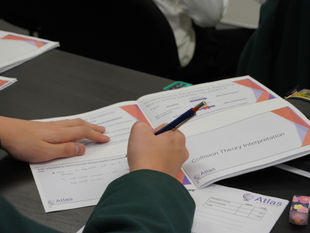
Recently at uni, we looked at some of the writings of the famous child psychologist (a person who studies children, he himself is not a child) Jean Piaget. I was struck by one of his quotes, which describes the process of learning new information as ‘conflict resolution.’ Piaget was considered to be the father of the learning theory of ‘constructivism,’ which is about how learning occurs through understanding something new in terms of prior knowledge.
What I found interesting was the idea that when confronted with new information, there will likely be some sort of perceived contradiction to the learner based on their novice understanding. This contradiction then leads to ‘conflict’ or even mental anguish. Piaget seems to claim that this is a natural process that should be embraced.

I was reminded of this again in one of the classes that I taught this week. I was showing Y10 students a bit of extension content in the form of quantum mechanics at the end of the term to celebrate reaching the end of the Physics section. Though the students asked great questions throughout and seemed to enjoy the learning, they also commented that they felt very disoriented. Their description jolted me right back to my high school days of relentless self-study of advanced science concepts, and that same feeling after a particularly productive study session (which could have only been 30 minutes of really focused thinking). I liken this feeling of mental strain to the physical analogue of muscle soreness after a quality workout, which when done right, leaves one feeling tired but in high spirits.
At the same time, I mourn that fact that this style of learning is incompatible with the standardised testing regime of senior high school. You can’t have your cake and eat it too. If you want to embrace sense-making and experimentation, then you also must be okay with challenging students with work that entails assessment scores much closer to 50% than 100%. On the other hand, if you want to teach to perfect memorisation, then the content itself must be dreadfully easy, and thus also uninteresting.













